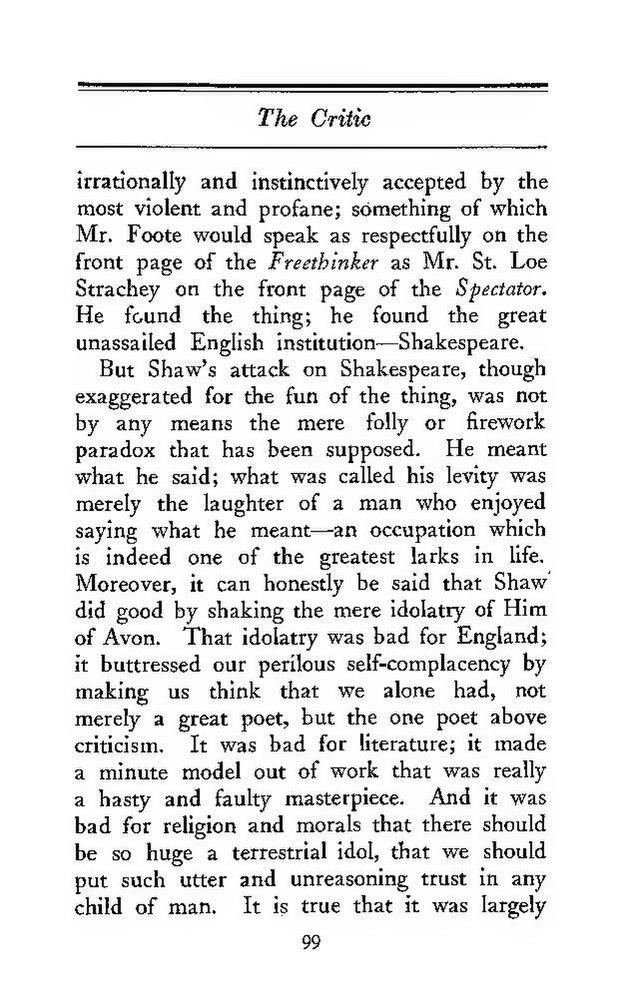irrationally and instinctively accepted by the most violent and profane; something of which Mr. Foote would speak as respectfully on the front page of the Freethinker as Mr. St. Loe Strachey on the front page of the Spectator. He found the thing; he found the great unassailed English institution—Shakespeare.
But Shaw's attack on Shakespeare, though exaggerated for the fun of the thing, was not by any means the mere folly or firework paradox that has been supposed. He meant what he said; what was called his levity was merely the laughter of a man who enjoyed saying what he meant—an occupation which is indeed one of the greatest larks in life. Moreover, it can honestly be said that Shaw did good by shaking the mere idolatry of Him of Avon. That idolatry was bad for England; it buttressed our perilous self-complacency by making us think that we alone had, not merely a great poet, but the one poet above criticism. It was bad for literature; it made a minute model out of work that was really a hasty and faulty masterpiece. And it was bad for religion and morals that there should be so huge a terrestrial idol, that we should put such utter and unreasoning trust in any child of man. It is true that it was largely
99
